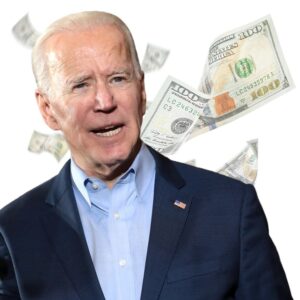Want to be an antiracist? Be a capitalist

As many Americans enjoy a short workweek due to Martin Luther King Day, it’s worth reflecting on how Democrats and progressives ignore MLK’s message to judge people not “by the color of their skin, but by the content of their character.”
Their solution to overcome racial economic disparities is a racial spoils system that divides income, jobs, promotions, and college admissions based on skin color, the opposite of MLK’s vision.
Consider Democrats’ broad support for race reparations, affirmative action, DEI benchmarks, and government programs and contracts that redistribute income based on race.
A California government-sanctioned task force is currently devising the size and scope of reparations to be funneled to Black residents. President Biden even attacked car insurers for being racist on Monday, perhaps a prelude to more federal regulations.
These racial redistribution schemes are downstream from “critical race theory,” which teaches that U.S. societal institutions like the economy are structurally racist. “The only remedy to racist discrimination is antiracist discrimination,” argues leading proponent Ibram X. Kendi in his book “How to be an Antiracist.” “The only remedy to past discrimination is present discrimination. The only remedy to present discrimination is future discrimination.”
Entrepreneurship can bring financial independence and hard-earned confidence. This is the empowering message that we should promote to kids and all minorities, not the soft bigotry that they are victims of structural racist forces.
Rather than MLK’s uniting message of racial progress that makes everyone better off, this neo-Marxist doctrine views society as a zero-sum competition among races.
To the extent this worldview has been implemented by Democrats, it’s led to pressure-group warfare and a deterioration of race relations. Ironically, this approach actually entrenches racial economic divides by impeding the greatest force for economic advancement that’s ever existed: the free market.
Capitalism is the true “antiracist” force because it rewards people based on hard work, ingenuity, and customer service rather than immutable characteristics like skin color. Doubling down on the free market is the best way to bridge racial economic gaps and achieve MLK’s dream.
As I argue in my new book, “The Real Race Revolutionaries: How Minority Entrepreneurship Can Overcome America’s Racial and Economic Divides,” increased minority entrepreneurship can achieve the racial economic equality we all seek. Data shows that minorities are disproportionately entrepreneurial and that minority entrepreneurs have already eliminated economic disparities, earning more than average White Americans.
I was inspired to write this book after I came across a title in a local bookstore marketed to grade-schoolers called “Sylvia and Marsha Start a Revolution.”
The book’s cover depicts two women of color, and its Amazon page describes it as “a playful introduction to trans identities,” telling the story of “the transgender women of color who fought for LGBTQ+ equality.” The moral of this story and so many others like it: Kids, especially minority kids, should pursue social activism and “revolution” to make the world a better place.
I thought, “Why can’t this book be Sylvia and Marsha Start a BUSINESS and feature a tale of entrepreneurship?” Starting a business is the real revolutionary act that minorities can take to empower themselves and their communities.
Entrepreneurship can bring financial independence and hard-earned confidence. This is the empowering message that we should promote to kids and all minorities, not the soft bigotry that they are victims of structural racist forces.
Democrats and progressives claim to be the intellectual descendants of MLK even while they pervert his message of racial blindness. They have staked out the moral high ground on racial issues, yet their activist message hasn’t delivered.
Meanwhile, the free-market small business economy is actually helping minorities reduce racial income equality through their own volition.
Small businesses and their defenders are the ones who genuinely deserve moral authority on race issues. It’s time we claim it.





